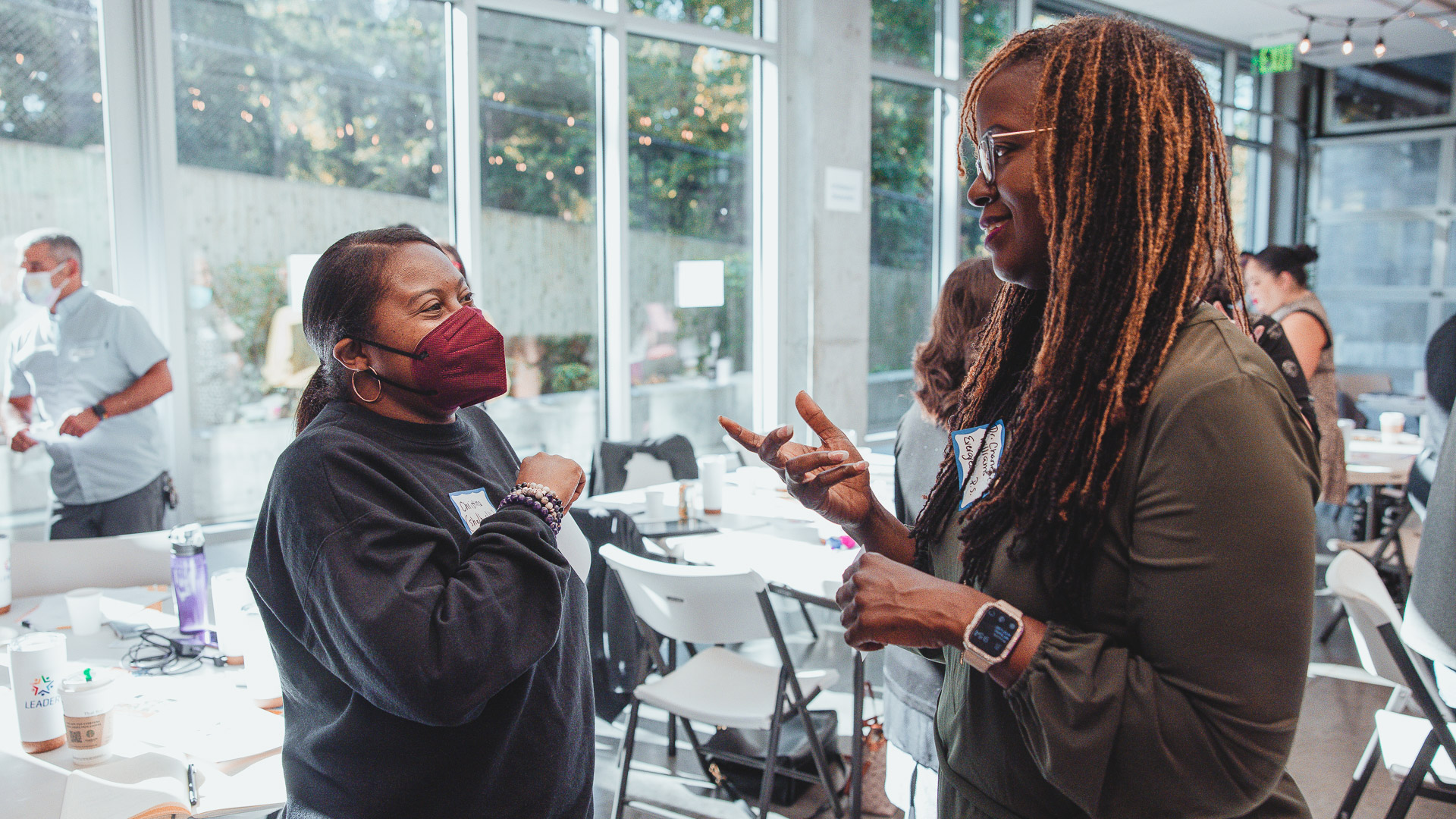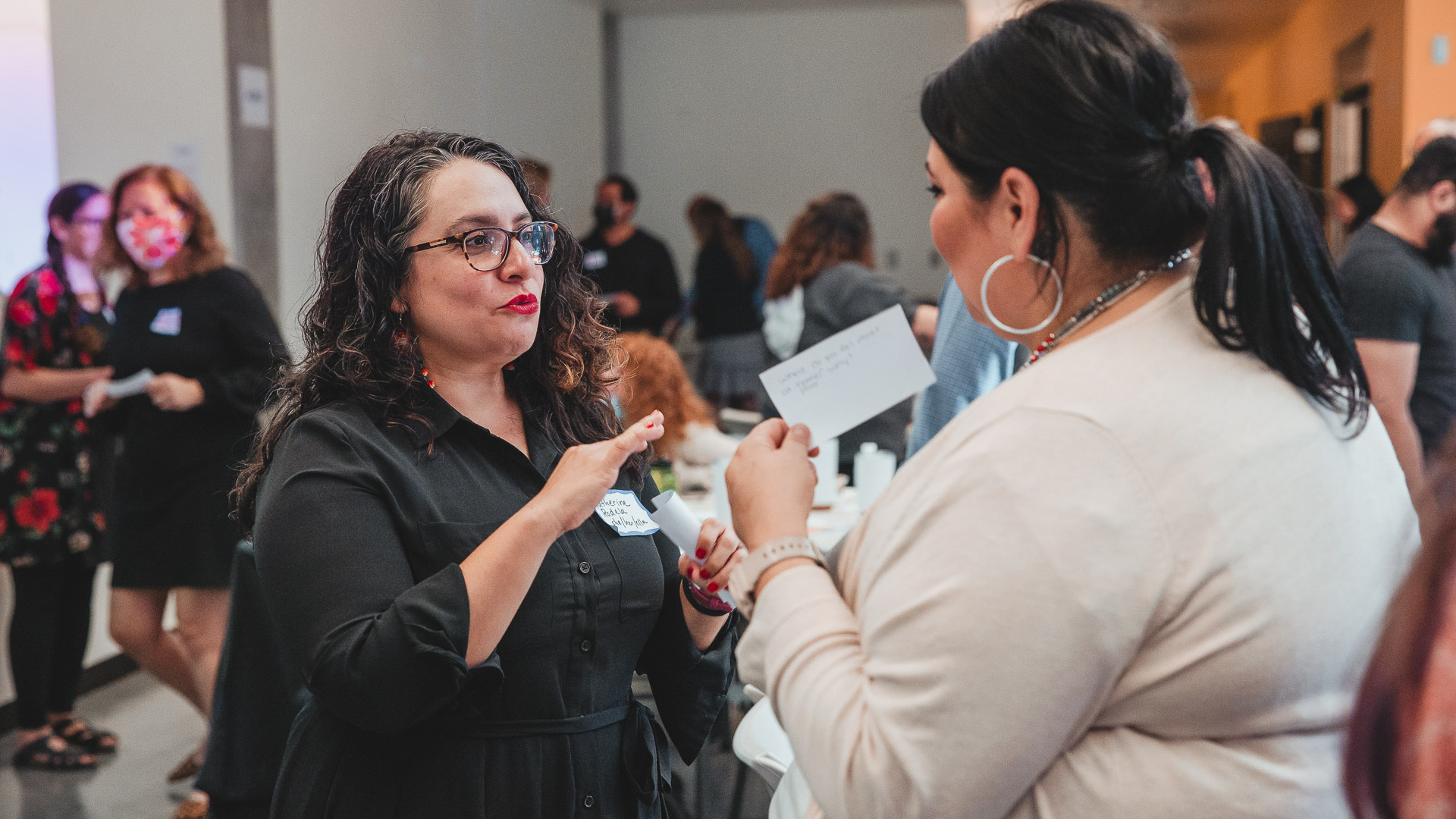
In response to an increasingly diverse student population and a top-priority request for more teacher diversification by Clark and Cowlitz Counties serving 89,000 students, Educational Service District (ESD) 112 launched their ESD-U program. The first cohort began working toward their teaching certificates in 2018. Most notably, unlike most other teacher prep programs where candidates must leave their jobs to accommodate student teaching, the program allows candidates like para educators to get the education they need without it interfering with their day job.
“We’re the only ESD that has this alternative route for people who are already working in the schools,” says ESD-U Program Director Dr. Lori Jass. “Just by doing that, our programs usually have 25 to 30 percent candidates of color. But we need to do better.”
ESD-U is one teacher prep program among many in the region. Candidates who get their certificate through ESD-U must already have a bachelor’s degree and receive clock hours rather than college credit. Active teachers write and teach the curriculum, including various endorsements. Over a year, candidates participate in online classes on Saturdays and some Wednesday evenings and generally use their position in the school to fulfill most of their field experience requirements.
To continue to recruit, prepare and retain the teachers that students need in the 30 school districts in Washington’s Southwest region, ESD 112 has teamed up with representatives from Clark College, Lower Columbia College, Washington State University, Vancouver (WSU-V), Evergreen School District, the Cowlitz Tribe, Camas School District, Clark County Latino Youth, and the Ethnic Support Council. Together, they are working as a LEADER Initiative core team within the grantmaking parameters during the initial two-year planning phase.
This group is also partnering and planning with human resource leaders, equity officers (and aligning with equity initiatives in the school districts), working with those in the district serving communities of color, tribal representatives, immigration assistance programs, teachers, behavioral health specialists, early childhood and career-connected learning and more. “We’re looking to leverage work already happening, removing barriers, identifying gaps, learning from each other, and working together as teacher preparation programs to ensure prospective teachers find the right program to pursue their goals,” says Jass.

Opportunities in this work include learning from one another, especially when some groups are further along than others. Jass notes the excellent research of team member Katherine Rodela at WSU-V in recruitment and retention. “WSU-V has been a leader in this area with DEI partnerships, and Clark College and Lower Columbia College, along with ESD112, are consistently engaged in expanding partnerships and opportunities in their respective programs,” Jass says. “Elsewhere in the region, a lot of it is tilling brand new soil, which can be a benefit or hardship, depending on how we do it.”
Learning from other regions in Washington is also a priority. “The Puget Sound region and Eileen Yoshina were a big influencer in my thinking that recruitment begins with retention,” says Jass. “We’re trying to attend to that. I invited one of my ESD 112 colleagues who works with early career training programs for teachers and principals. She is launching affinity groups for teachers of color and working on equity training for superintendents and HR to identify some of the systemic barriers and remove them.”
Another area of strength and potential growth is in the English Language Learners (ELL) endorsement that the ESD-U program offers for a candidate pool that is 30 percent multi-lingual. Jass sees her role as helping the partners benefit from the foundations that different programs have built. “I don’t want to interfere with different programs’ flow,” she says. “We’re trying to open it up so more people can benefit from the groundwork we’ve all done. We are all working toward diversification of the workforce. If a person is better served at Clark than at WSU-V, they should go to Clark and vice versa. It’s helpful to think of all for one and one for all.”
Find out how you can Get Involved, explore our virtual Events, or sign up below for news updates about the LEADER initiative.
Get the latest — subscribe to our electronic newsletter.
By signing up you agree to receive occasional communications from College Spark Washington. You can unsubscribe at any time. We respect your right to privacy. Please review our Privacy Policy
